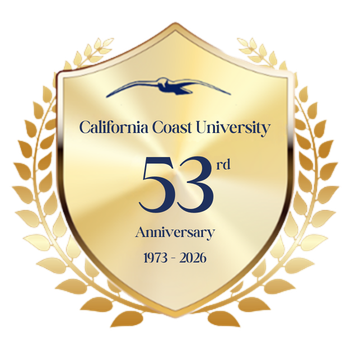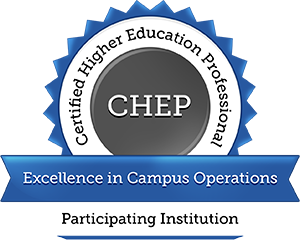Human Resource Management
Graduate Certificate Online Program
The graduate certificate program in Human Resource Management provides students with a strong foundation to advance within the evolving human resource profession, with coursework in human relations, advanced human resource management, and compensation strategies. The program prepares students for positions managing the interaction of personnel and covers the latest HR protocols in today’s evolving business climate.
Designed For You
The California Coast University online Graduate Certificate in Human Resource Management program was designed for complete flexibility for the student. All courses are self-paced and completed 100% online.
-
Low tuition with interest-free payment plans as low as $150/month.
-
Flexible programs designed to fit into your busy schedule. Self-paced study with no group projects, set meeting times, or exam dates.
-
The program is not structured in semesters, quarters, or terms. It is designed to allow students to begin their online studies at any time of the year.
-
CCU offers a tuition discount for Active Duty Military, Veterans, Law Enforcement, Firefighters, Government Employees, and CCU Graduates.
We also offer a 10% discount for Corporate Partner employees. For more information on how to become a Corporate Partner, see our Corporate Partnership Information Page.
*Employment verification is required. Offer good for students who enrolled after January 2024 and were offered discount at time of enrollment. Offer is not retroactive for students already enrolled. Discount and/or prices subject to change and/or cancellation at any time without notice. This offer cannot be combined with any other discount(s).
.png)
Upon successful completion of the program, students will be able to:
- Examine concepts, models, procedures, tools, and techniques of human resource management.
- Explore theories and research related to the behavior, structure, and process of organizations.
- Analyze advanced issues related to human resource management in the context of a modern organization.
- Examine the role strategic compensation plays as a key element in the promotion of organizational success.
- Utilize critical thinking, academic writing, and research skills to explore key concepts and theories related to program content.
It has helped me to better my knowledge in my daily profession.I truly appreciate the opportunity to work at my own pace and achieve my goals of obtaining a masters degree.
Explore The Program
The Graduate Certificate in Human Resource Management consists of 4 total courses.
The required courses are comprised of:
4 Core Courses
.
There are 12 total semester units in this program.
The online Graduate Certificate in Human Resource Management is comprised of the following 4 courses. Click on course title to expand and read more.
| ID | Course Name | Units | |
|---|---|---|---|
| BAM 510 | Human Resource Management | 3 | |
| BAM 515 | Organizational Behavior | 3 | |
| BAM 535 | Advanced Human Resource Management | 3 | |
| BAM 545 | Strategic Compensation | 3 | |
Prerequisites to Admission:
An applicant must have earned a Bachelor Degree in Business Administration, Leadership, or Management, or a Bachelor Degree in another field may be considered if the Admission Committee evaluation indicates that the applicant has the necessary foundation to succeed in the program.
FAQ About Coursework
Required units may be satisfied in the following ways:
-
California Coast University has developed comprehensive Study Guides, for each course, that are designed to coordinate and sequence the learning materials within the required textbook. The following points will help to illustrate how the Study Guides are designed:
- Study Guides are based on specific college level textbooks, which may be obtained from local bookstores, the publisher, or the University's Rental Library.
- Each Study Guide is organized with a complete syllabus, along with instructional materials to guide the student chapter by chapter through the corresponding textbook.
- Each Study Guide contains an overview and summary of all textbook chapters, along with a listing of important keywords (with definitions), and self-tests (with answers) on key points.
- Study Guides include 4 unit exams equally spaced throughout the instructional materials, one writing assignment per unit, and the final examination.
- Education certificate students are required to complete four written assignments for each unit examination in lieu of the 4 multiple-choice unit exams that are required for other programs.
- Examinations are designed to test the student on the information contained within the preceding chapters.
- All tests have no time limit and may be completed as open book tests.
-
Transcripts of previously completed academic work are evaluated and credit may be transferred to meet existing coursework requirements. The following guidelines are utilized when accepting transfer credit for a certificate program:
- The University will accept transfer credit from applicable courses completed at colleges or universities accredited by an agency recognized by the U.S. Department of Education or foreign equivalent.
- Certificate students may receive transfer credit for up to 6 semester units of previously completed coursework. Students may transfer up to 9 semester units of credit completed at California Coast University.
- To be eligible for graduate academic credit, transfer grades must be equivalent to a letter grade of B (3.0 GPA) or higher.
-
During the admissions process, all professional experience is reviewed to determine if an applicant has sufficient occupational experience to warrant completing a Challenge Examination in lieu of a Study Guide for a particular course. The following factors are considered:
- An applicant may be offered an opportunity to complete a Challenge Examination if the candidate's occupational expertise appears to be comparable to the objectives identified for a particular course.
- Successfully passing a Challenge Examination will demonstrate an acceptable level of competence for that course.
- If a student does not pass a Challenge Examination they are assigned a Study Guide for completion.
- The maximum amount of Challenge Examinations allowed for each program level are: Associate 4; Bachelor's 10; Master's 2; Doctorate 0; and Certificates 1.










.jpg)






